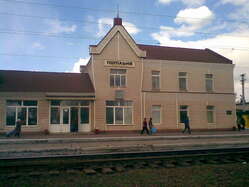 Russia’s latest move in its war with Ukraine, to pull out of a deal that allowed Ukrainian grain shipments through the Black Sea, reignites fears of a global food crisis. The arrangement – brokered by the UN in July – had enabled Ukraine to export more than 9 million tonnes of grain and oilseed products to the world market, while allowing Russia to export food and fertiliser. The deal helped avert a famine in parts of Africa and other low-income countries, and prompted a 15% drop in food prices. Russia suspended the arrangement for an “indefinite term” in response to a drone attack at the weekend on its naval base at Sevastopol in Crimea – home to its iconic Black Sea Fleet. Moscow has called the incident a terrorist attack and blamed the British navy for coordinating it – an accusation dismissed by the UK government. Kyiv says Russia’s decision leaves more than 200 Ukrainian vessels blocked in port or at sea. Other participants in the deal have vowed to continue with it, while some European countries are working to boost Ukrainian grain exports via land routes. The United Nations, Nato, the European Union and US have all urged Russia to reverse its decision to pull out of the deal, under which Moscow guaranteed safe passage for cargo ships carrying grain from Black Sea ports that had previously been blocked because of the war. Nato has accused Russian president Vladimir Putin of “weaponising food”, while US secretary of state Antony Blinken called on “all parties to keep this essential, life-saving initiative functioning”. It would appear that Putin is blackmailing the West with the threat of a global food crisis in response to Ukraine’s recent successes on the battlefield. Ukraine has long been known as Europe’s breadbasket, with grain exports of more than 45 million tonnes a year making it one of the world’s largest exporters. Russia’s invasion in February led to the closure of its seaports, which halted all grain shipments, driving up food prices and contributing to fears of famine in many parts of the world. Soaring food costs this year had pushed an estimated 47 million people into severe hunger. Russia’s own most productive grain-producing areas lie directly to the north of Ukraine, and much of its grain passes through Black Sea ports. The Russian Empire was largely built on grain revenues, with wide swaths of the fertile steppe land of present-day Ukraine seized for Russia by Catherine the Great, and trade routes were much the same as they are today, with grain transported to the Black Sea for export. Grain was shipped from Odesa, the region’s major port, to the fast-expanding cities of London, Liverpool, Amsterdam and Antwerp, where it was ground into flour to feed the growing working classes of western Europe and help fuel industrialisation from the mid-nineteenth century onwards. Jewish grain merchants based in and around Kyiv and Odesa were the middle-men in this enterprise – among them my great-great grandfather, Berl Shnier. Berl was born in 1860 in the Jewish shtetl of Pavoloch, southwest of Kyiv. His father owned a millet mill, where he used an abacus to calculate his prices, scratching chalk marks onto the stone wall for his accounts. Being illiterate, his marks were incomprehensible to anyone but himself. Unlike his father, Berl attended school, learning to read and write not only Yiddish and Hebrew, but later Ukrainian, Polish and Russian too. With his father’s help, he deciphered and transcribed onto paper the chalk marks along the wall. By the time he was twenty, he had grown his father’s business to trade millet with Jewish dealers from Riga and Kaliningrad to the Caucasus. As time passed, Berl expanded into wheat, rye, corn, buckwheat and barley; later he added dried pulses, developing a network of agents, dealers and shippers and broadening his business right across Europe – as far as England – and throughout Central Asia. The local train station at Popilnia, some twelve miles away, was on the Kyiv-Odesa line and became the hub of his business, providing news of current market prices and export rates. It’s difficult to believe looking at contemporary photographs of the sleepy railway buildings, but the station at Popilnia was a buzzing hive of activity. Here Berl would pass the hours drinking tea with his fellow traders, discussing prices and agreeing complex speculative contracts based on potential production months or years ahead. In February-March each year, he would spend a month in Kyiv for the annual commodities exchange, where agents and dealers from all over Europe congregated to meet suppliers, examine the quality of produce and negotiate prices. He spent the evenings in the company of brokers, money-lenders, merchants and travelling salesmen, discussing their successes and failures and the business news of the day. Berl died in 1924, shortly before he was due to emigrate to Canada, where his granddaughter Pearl – my grandmother – was raising money and arranging documentation to enable the rest of her family to join her in Winnipeg.
0 Comments
Leave a Reply. |
Keeping stories aliveThis blog aims to discuss historical events relating to the Jewish communities of Ukraine, and of Eastern Europe more widely. As a storyteller, I hope to keep alive stories of the past and remember those who told or experienced them. Like so many others, I am deeply troubled by the war in Ukraine and for the foreseeable future, most articles published here will focus on the war, with an emphasis on parallels with other tumultuous periods in Ukraine's tragic history. Archives
March 2024
Categories
All
|
 RSS Feed
RSS Feed
